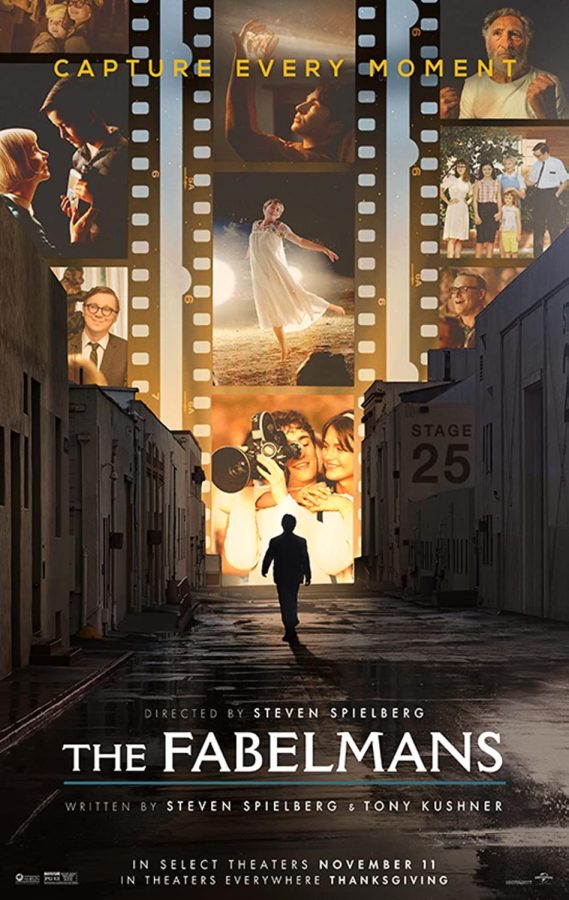“The Fabelmans” review: Pure Spielberg with a twist
February 17, 2023
On the one hand, “The Fabelmans” bears the narrative hallmarks that have punctuated Steven Spielberg’s now fifty-plus-year career: troubled family dynamics, children adrift, an idealistic dreamer bent on convincing a cynical public that he has something to offer, and, of course, the ‘Spielberg face’, that slow push into a character’s response to something that is so often far more interesting than the thing itself. “The Fabelmans,” however, also feels like something new from the 76-year-old director. Spielberg elects to remove the artifice and to look himself and his story in the eye in detailed, largely unsentimental, autobiographical fashion.
That he does so effectively is a testament both to his skill as a craftsman of cinema, a fact that has never really been in doubt, and his willingness to just present the facts without telling his audience how to feel about them. When Spielberg has fallen short, it has often resulted from his need to ensure audience connection with sentiment. But here, with writing partner Tony Kushner, one of cinema’s greatest storytellers unravels his own story, warts and all, unvarnished by the filmmaker’s commentary on the events in question.
What Spielberg has crafted in “The Fabelmans” is his most emotionally resonant work in at least a decade. The story of Sammy Fabelman’s journey from awestruck child observer of the train crash sequence from “The Greatest Show on Earth” (the very first movie he watched) to the creator of celluloid tumults in his own right, is part coming-of-age story, part incisive domestic drama, and a lot love letter to the medium that made Spielberg one of the most commercially-successful artists of all time. These variegated elements mostly succeed on the strength of Spielberg and Kushner’s script, an exceptional cast led by Michelle Williams and Paul Dano as Sammy’s parents, and Spielberg’s deft touch with camera framing and movement (working again with longtime DP, Janusz Kaminski).
At its core, the film is about young Sammy Fabelman (mostly played as a teenager by Gabriel LaBelle) finding his artistic identity as his parents’ marriage falls apart. Spielberg portrays Sammy’s obsession with cinema partly as an attempt to understand and reckon with his family’s dysfunction. One of the film’s best scenes and the aforementioned “face” time moment entails Sammy showing his mom the complete version of the home movie he made of the family camping trip and the captured moments of her clearly flirting with dad’s ostensible best friend, ‘Uncle’ Bennie (a perfectly-cast Seth Rogen). Here, a movie becomes, for Sammy, a vessel of expurgation and revelation and, perhaps most importantly, a thing he can fully control.
“The Fabelmans” biggest reveal may be Spielberg’s own tacit acknowledgement that, despite the painful reality of his parents’ break-up, he almost certainly wouldn’t have been the same filmmaker without it. In seeking to make sense of the nonsensical, young Steven Spielberg turned to movies and there he found solace. There he found connection. One can understand his getting a little sentimental about that fact. On Oscar night, the Academy could well feel a similar sentiment and award him the Directing statuette.
“The Fabelmans” is now available in theaters.








